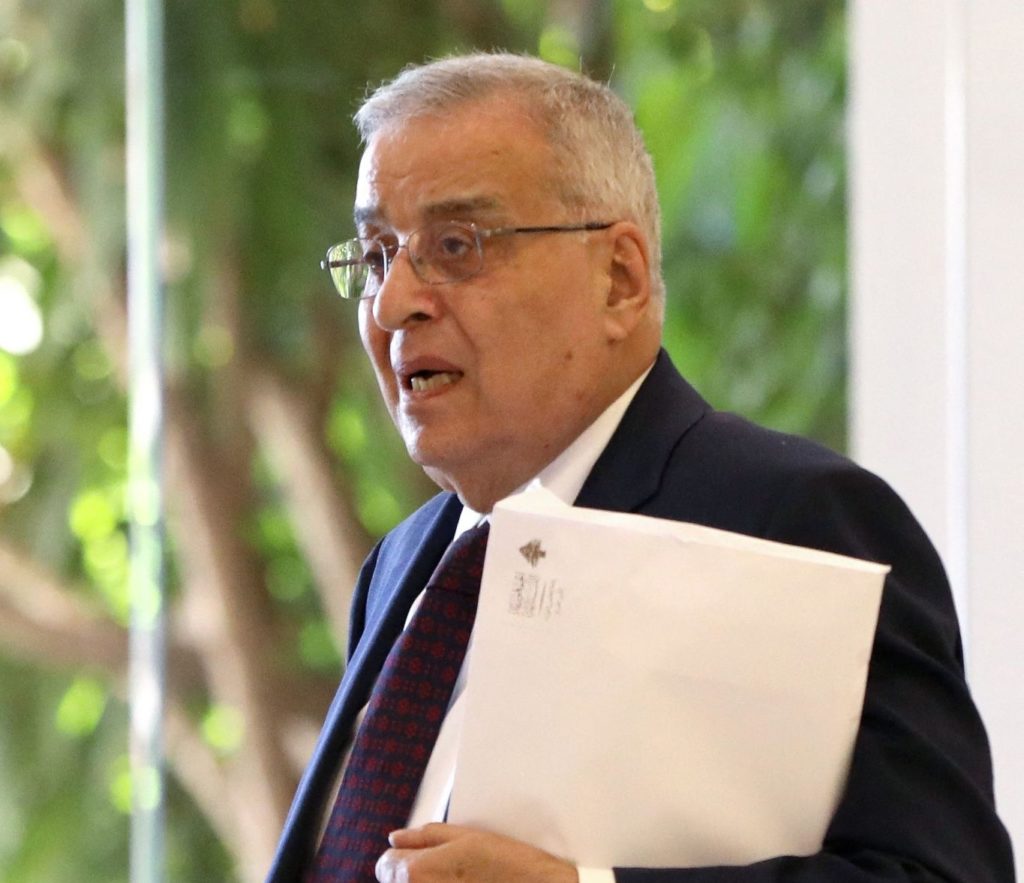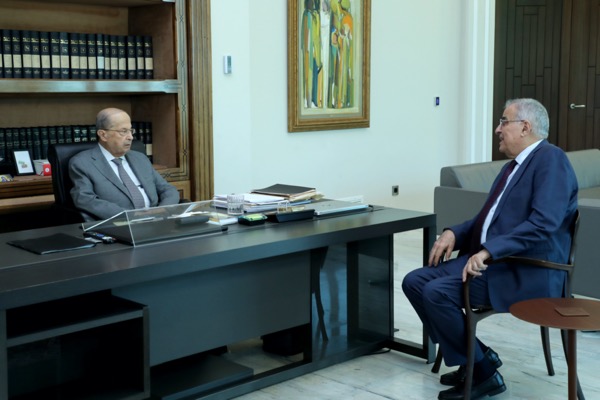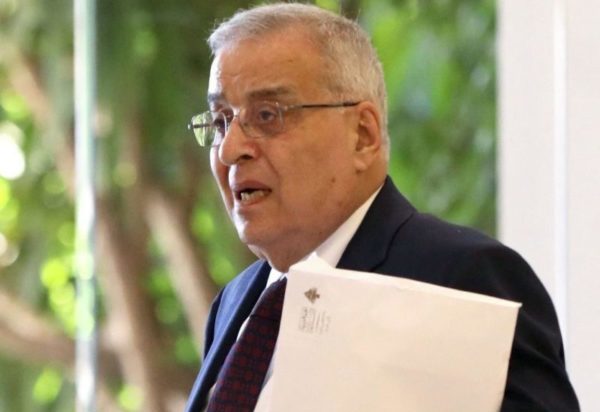
Foreign Minister Abdallah Bou Habib met Wednesday with President Michel Aoun in Baabda, hours after Saudi newspaper Okaz published controversial statements attributed to the minister which further aggravated the already tense relation with Saudi Arabia.
“What happened over the past days must stop at the extent of putting the common Arab interest first and refraining from pouring oil on fire, especially that Lebanon has always been a supporter of all brotherly Arab countries and will not be a pathway for harming any state,” Bou Habib said in a statement issued after the talks.
“Lebanon, which has always worked to achieve solidarity among the Arab states and paid dearly for this choice over the past years, is today looking forward for its brothers in the Arab countries and the Gulf states to stand by it in the current difficult circumstances that it is going through,” the minister added.

He also noted that President Aoun “has reiterated that Lebanon’s stance is unified over the need for establishing the best relations between Lebanon, Saudi Arabia and the rest of the Gulf states and Arab nations.”
“These relations should not be affected by any stances issues by a side or parties that do not reflect the Lebanese state’s viewpoint,” Bou Habib quoted Aoun as saying.
Lebanon’s spat with KSA and other Gulf nations unfolded over statements by Lebanese Information Minister George Kordahi aired last week about the war in Yemen, which Lebanese officials have said do not represent official government views.
Riyadh angrily recalled its ambassador and asked the Lebanese envoy to leave. It also banned Lebanese imports, depriving the small country of millions of dollars while it is deep in an economic crisis.
Gulf countries and Yemen have joined Saudi Arabia in pulling out their diplomats, sharpening the diplomatic slap.
Despite the calls for mediation and dialogue, there is no sign of the crisis letting up.
Instead, Bou Habib’s apparently off-the-cuff remarks threaten to further aggravate the crisis. In the leaks published by the Saudi newspaper, the minister reportedly said that drug smuggling out of Lebanon would not have happened if there was no “market” in Saudi Arabia.
The comments, apparently made at the outset of the crisis, were interpreted by Saudi media as an endorsement of the smuggling, which had been another reason for the tension with Lebanon.
Since the crisis, Bou Habib in comments to the press had said Riyadh was being too harsh on Lebanon. He did not deny the leaked comments Wednesday in a statement, but said he had wished the Saudi paper would have helped in resolving the crisis “instead of publishing partial and wrong narratives” that only complicate matters.
Meanwhile, the Lebanese minister at the center of the crisis, George Kordahi, has refused to apologize or step down, saying his remarks about the Yemen war, which were recorded before he took the post in September, were not meant to offend.
At the heart of the crisis is Saudi Arabia’s frustration with the growing role of Iran-backed Hezbolah in Lebanon. Riyadh is locked into a regional power rivalry with Tehran, which it accuses of backing the Houthi rebels in Yemen along its borders.
Since the 1950s, Saudi Arabia has been one of the biggest supporters and sponsors of Lebanon and its stability. In 1989, Saudi Arabia hosted and engineered the Taif Agreement that led to the end of the 15-year civil war. After the conflict, as after every round of war with Israel, Saudi Arabia was always the first to offer Lebanon donations for reconstruction and to deposit foreign currency at the Lebanese central bank to keep the economy and more importantly the national currency, afloat.
The Lebanese rulers are known for pursuing personal interests at the expense of national ones. As long as Hezbollah decides who rules Lebanon, it will make sure that the rulers of Lebanon will side with Iran against their national interests, which are naturally are better served by sticking with Saudi Arabia instead.
Associated press/Ya Libnan


Leave a Reply
You must be logged in to post a comment.